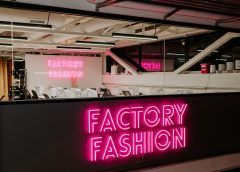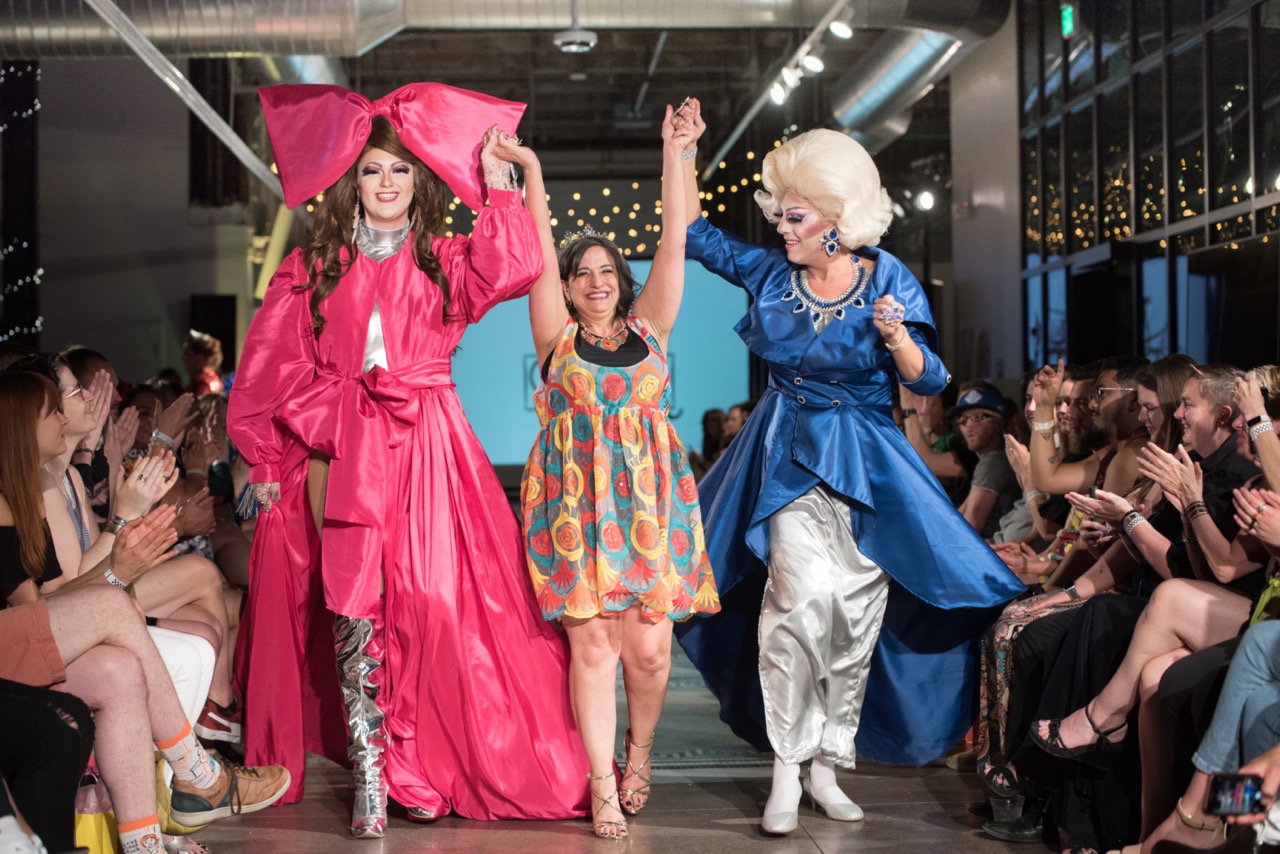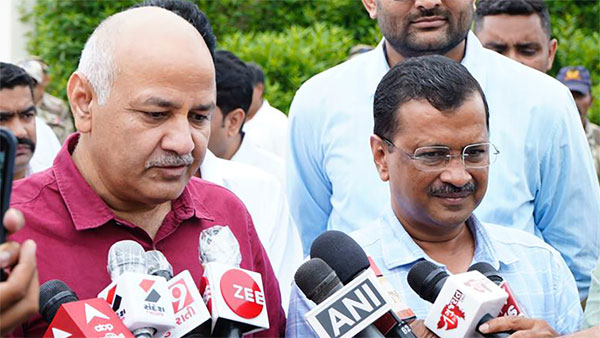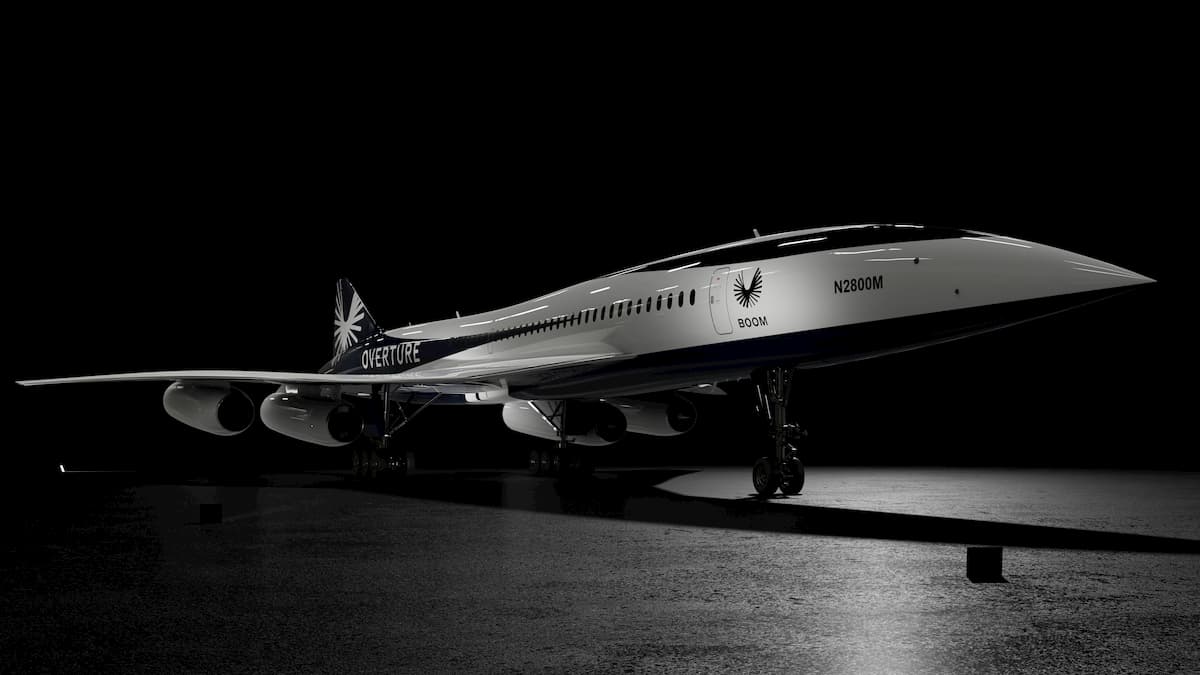
Providing an Opportunity of a Lifetime for Local Designers, Factory Fashion Launches A Small Batch Manufacturing Business
[ad_1]
Skye Barker Maa, the owner of Factory Fashionhas done it all. From theater programs to sewing classes, she is expanding her repertoire by launching a small batch manufacturing business for local designers to obtain the resources and exposure they desire.

Photo Courtesy of The Hip Photo
Factory Fashion continues to expand and bring unique opportunities to the Colorado fashion community. With this small batch manufacturing business, designers are offered the chance to work closely with their consumers, make quality garments and strive for sustainability.
The Evolution of Factory Fashion
Alongside Barker Maa, designer Lisa Ramfjorz Elstun created the small batch manufacturing program inside Factory Fashion, located in Stanley Marketplace, and nestled in a small lab located in Factory Five Five. The two brought sewers from around the world on board to get the business rolling.
Elstun, an award-winning couture designer with bridal and lingerie as her specialty, explained that she is “very blessed” with the opportunity and chance to help Barker Maa set up her factory. Throughout her lifetime, she has accomplished many amazing projects that can be found on her website.
Elstun aims to create an independent factory that prioritizes small batch manufacturing necessary for emerging designers to be successful. She explained that a majority of the designers that she has worked with in the past have not received academic training and have had limited funds to market their products. Therefore, this new program is very rewarding for Elstun.
Together, Barker Maa and Elstun are paving the way for local designers to reach their markets and showcase their products.
As a mom, Barker Maa began her career by creating opportunities that she noticed her kids lacked. She started the Neighborhood Music School for one of her sons. This offered a specific music training that she couldn’t find for him elsewhere. He is now soaring in his career and is a concert pianist who plays around the world.
The idea for Factory Fashion derived from her daughter, who was interested in sewing. Barker Maa realized she wouldn’t be able to provide the instruction her daughter needed herself, so she started a business that would benefit both of them.
Factory Fashion is a versatile space that is used as an incubator for designers to utilize as they need. The space offers all of the equipment necessary to create garments – like sewing machines and work areas.
Small Batch Manufacturing: The Program, The People and The Product
After Barker Maa spoke with some of the designers that were using her space, she saw an opportunity for those not prepared for large-scale manufacturing to help them further their careers.
This small batch manufacturing business will be creating 50-100 pieces for the designers, giving them more creative freedom and the opportunity to see consumers’ reactions.
Barker Maa is providing an opportunity for designers to expand their businesses in a scalable way that is less risky and where they are offered more control over the quality of their pieces. The program also aims to establish an accessible work environment.
In searching for sewers to join, Barker Maa and Elstun were very pleased with the outcome. They realized that a lot of the sewers already had established skills, contrary to what they were expecting.
“We both looked at each other after the interviews and said, how did we get so lucky?” said Elstun. As the program began, Barker Maa and Elstun were both amazed at how talented their new team already was.
“Sewing is a highly skilled profession that hasn’t been valued in the way that it should have financially for the people that are involved in it,” said Barker Maa. As a result, she is hoping to create an environment where these workers can have a career in sewing while supporting themselves and their families financially.
The program is currently fully staffed with a team consisting of traditional sewers, traditional designers and several individuals within the refugee community.
Barker Maa plans to provide all the necessities for her sewers such as assisting with transportation and child care, along with translation services.
“Our staff includes someone from Afghanistan who is deaf and mute and doesn’t speak any English, so we have a translator and his wife to help with the sign language translation,” Barker Maa said.
Throughout this process, Barker Maa is making an intentional effort to ensure that her staff is fully equipped with the tools they need while keeping their religion and culture in mind. The team plans to adapt culturally in setting up their offices by grouping individuals practicing the same religion together for comfort and setting aside time for religious needs, such as praying.
“Whatever the hurdle is, we are going to get over it,” said Barker Maa.
The Designers Involved
Currently, there are 4 designers within the program, including Darlene C. Ritz with DCR studios, Jordan Stratton with Stratton Robe Co., Norberto Mojardin with Latin Fashion Week Colorado and Skye Barker Maa with SKYAIRE. Designed and implemented by Elstun, the program will cap the number of designers on board at a given time to maintain the quality of the garments.
One of the seamstresses on the team, Angelica Hayes, who also goes by Geoi, is also a designer herself. She taught herself how to sew in 2017 and has now been designing and sewing ever since.
Hayes would seasonally drop a collection of her own on social media to gain recognition in the fashion community. She then came across the opportunity to work with Barker Maa and Elstun while searching for a job to align with her dream career. During her job search, Hayes had a hard time finding an opportunity that would suit her passions. In stumbling upon Factory Fashion, she found that her needs and expectations would be met.
“Skye wants people who have dreams and passions to be a designer,” Hayes said. In working for someone like Barker Maa, Hayes feels rewarded and respected at work.
“It’s like getting paid to be in school, I get to wake up and do everything I want every day,” said Hayes. “I had never heard of something like this before and now that I have I can’t stop talking about it.”
Ritz, another designer participating in the program, has made a name for herself and her brand in the Denver fashion scene. Her background includes hosting a solo show in the Denver Unique Week of Fashionwhere she was first introduced to Factory Fashion. She now teaches several fashion classes at Factory Fashion’s school.

Photo Courtesy of Robins Photography
In 2019, Ritz was asked to show a collection at London Fashion Week and then in 2021, was asked to show at New York Fashion Week. Through her continued success, Ritz offers a strong message to her consumers – everybody is beautiful and fashion should be body inclusive, size-inclusive and gender inclusive, among many other things.
Ritz noticed that the fashion industry was lacking options for clothing that fits bodies like her own, which led her to pursue fashion design. She also realized that the world and fashion community was ready to hear her message.
“We shouldn’t have to change our bodies to fit clothes – the human is what’s important. Our clothing should make us feel good and give us a sense of confidence so we can go out and tackle our day,” said Ritz.
Working in direct contact with consumers is something that is very important to Ritz, and this is exactly the opportunity that Barker Maa is providing for local designers. For independent designers like Ritz, the accessibility to their market makes all the difference.
“Fabric is fabric, the only gender that it has is what we assign to it. Everyone can be and should be allowed to be fashionable – clothing should fit the human,” said Ritz.
Through the small batch manufacturing program, Ritz can produce 50 garments at a time, offering “more flexibility along with not having to worry about how much I am selling,” she said. Ultimately, the program gives designers the opportunity to test out garments and see how they do, before producing a mass amount.
Many consumers don’t understand what large manufacturing does to the individuals sewing these garments. Ritz explained that sometimes, it can take her up to 3 hours to sew one pair of pants. Imagine spending all that time and receiving close to nothing for compensation. That’s the current reality of the industry and programs like this one are working to eliminate unfair working conditions and other atrocities associated with sewing and manufacturing.
“Ethical treatment of workers will drive the cost up, to me that’s worth paying for,” Ritz added.
This program will not only provide educational benefits to all the staff but will hopefully inform consumers and open their eyes to the benefits of small batch manufacturing.
Check out more information on this small batch manufacturing program on their websitealong with products available for purchase.
[ad_2]
Source link


